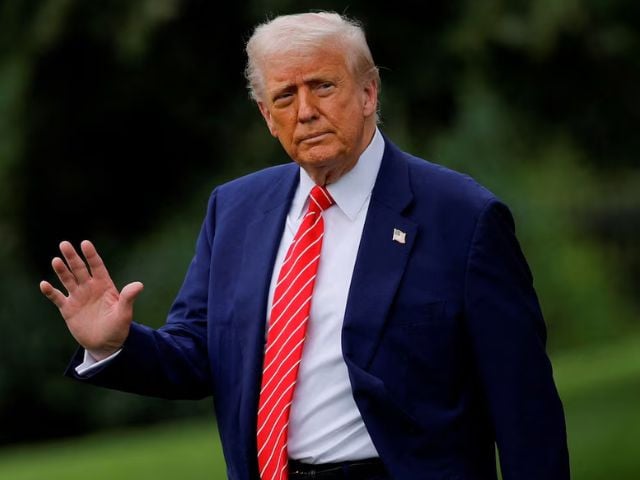Can Trump Broker Iran-Israel Peace with Putin's Help?

The Escalating Conflict: Iran, Israel, and the Role of U.S. Diplomacy
The geopolitical landscape of the Middle East has long been fraught with tension, especially between Iran and Israel. Recent developments have escalated this conflict, prompting U.S. President Donald Trump to express optimism about a potential resolution. His assertion is rooted in recent diplomatic efforts, including his involvement in the Pakistan-India conflict. In this article, we will explore the complexities of the Iran-Israel conflict, Trump's role in diplomacy, and the broader implications for global peace.
Understanding the Roots of the Iran-Israel Conflict
The animosity between Iran and Israel dates back decades, rooted in ideological, political, and territorial disputes. Central to the conflict is Iran's nuclear program, which Israel perceives as an existential threat. Israel has consistently opposed Iran's nuclear ambitions, leading to a series of military confrontations and strategic maneuvers aimed at containing Iranian influence in the region.
Key Factors Contributing to the Conflict
- Nuclear Ambitions: Iran's development of nuclear capabilities has alarmed Israel and its allies, sparking fears of a nuclear-armed Iran.
- Proxy Wars: Iran supports various militant groups in the region, such as Hezbollah in Lebanon and Hamas in Gaza, which further complicates the conflict.
- Regional Alliances: The shifting alliances in the Middle East, including Israel's normalization of relations with several Arab states, have altered the balance of power.
- Historical Grievances: The historical context of the Israeli-Palestinian conflict plays a significant role in Iran's stance against Israel, as it positions itself as a champion of Palestinian rights.
The Recent Escalation: A Timeline of Events
The recent escalation began with Israel launching missile and air strikes against Iranian nuclear facilities. This military action was met with a swift and forceful response from Iran, leading to a cycle of retaliatory strikes.
Key Events in the Recent Conflict
- May 7, 2025: India and Pakistan engage in a four-day conflict, drawing global attention to the region.
- May 10, 2025: The U.S. President claims credit for brokering a ceasefire between India and Pakistan, framing his diplomatic efforts as a success.
- May 30, 2025: Israel launches air strikes against Iranian military targets, escalating tensions further.
- June 1, 2025: Iran retaliates with missile barrages and drone strikes against Israeli positions.
Trump's Diplomatic Approach and Statements
In light of the escalating conflict, President Trump has positioned himself as a potential peacemaker, drawing on his previous experience as a negotiator. His claims of having brokered peace in the India-Pakistan situation have bolstered his confidence in resolving the Iran-Israel crisis.
Key Statements from President Trump
- "I do a lot, and never get credit for anything, but that's OK, the PEOPLE understand."
- "Iran and Israel should make a deal, and will make a deal. We will have PEACE, soon, between Israel and Iran!"
- "Many calls and meetings now taking place," indicating ongoing diplomatic efforts.
Engagement with Global Leaders
In addition to his interactions with Iran and Israel, Trump has reached out to other global leaders, including Russian President Vladimir Putin. Their discussions have centered around potential mediation roles for Putin in the conflict.
The Role of International Diplomacy
As the conflict escalates, the role of international diplomacy becomes increasingly critical. Countries such as France, Germany, and the United Kingdom have expressed their willingness to engage in talks with Iran regarding its nuclear program. These diplomatic efforts signify a collective recognition of the need for a peaceful resolution to the crisis.
Key International Responses
- French President Emmanuel Macron: Expressed hope for a return to calm in the region.
- German Foreign Minister Johann Wadephul: Announced readiness for immediate talks with Iran.
- British Prime Minister Keir Starmer: Advocated for diplomacy and dialogue amid rising tensions.
The Implications of Continued Conflict
The ongoing conflict between Iran and Israel holds significant implications not just for the Middle East, but for global stability as well. A prolonged confrontation could draw in various international actors and lead to wider regional instability.
Potential Consequences of Escalation
- Humanitarian Crisis: Continued military action can exacerbate the humanitarian situation in both Iran and Israel, leading to civilian casualties and displacement.
- Global Economic Impact: Instability in the Middle East can disrupt global oil supplies and impact economies worldwide.
- Increased Radicalization: Prolonged conflict can fuel extremist ideologies and increase recruitment for militant groups.
Looking Ahead: Can Peace Be Achieved?
The question of whether peace can be achieved in the Middle East remains uncertain. While diplomatic efforts are ongoing, the deeply rooted issues driving the Iran-Israel conflict complicate the path to resolution. President Trump's optimism, while encouraging, must be balanced with a realistic understanding of the challenges ahead.
Factors That Could Facilitate Peace
- Willingness to Negotiate: Both Iran and Israel must demonstrate a genuine willingness to engage in dialogue and explore peaceful solutions.
- International Mediation: The involvement of neutral third parties could help facilitate discussions and build trust between the conflicting parties.
- Addressing Core Issues: A successful resolution will require addressing the fundamental issues at the heart of the conflict, including Iran's nuclear program and regional influence.
Conclusion
The escalating conflict between Iran and Israel poses significant challenges to regional and global stability. While President Trump's claims of being a capable peacemaker reflect his confidence, the realities on the ground require comprehensive diplomatic efforts and the cooperation of multiple stakeholders. As we navigate this complex geopolitical landscape, the hope for peace remains, but it hinges on the willingness of all parties to engage in constructive dialogue.
The situation is fluid, and developments can unfold rapidly. It is imperative for global leaders and nations to remain committed to diplomacy as a means of resolving conflicts, fostering a future where peace can thrive in the Middle East.
Frequently Asked Questions
What are the main causes of the Iran-Israel conflict?
The Iran-Israel conflict is primarily driven by ideological differences, territorial disputes, and Iran's nuclear ambitions, which Israel perceives as a direct threat to its existence.
What role does the U.S. play in Middle Eastern diplomacy?
The U.S. often acts as a mediator in Middle Eastern conflicts, leveraging its influence to facilitate negotiations and promote peace agreements among nations in the region.
Can international mediation help resolve the Iran-Israel conflict?
Yes, international mediation can play a crucial role in resolving the conflict by providing neutral ground for discussions and helping to build trust between the parties involved.
As we reflect on the current geopolitical landscape, one must ponder: Will we see a breakthrough in peace efforts, or will the cycle of conflict continue? The answer lies in the hands of global leaders and their commitment to a diplomatic resolution. #PeaceInTheMiddleEast #IranIsraelConflict #DiplomacyMatters
Published: 2025-06-16 02:54:53 | Category: Uncategorized



